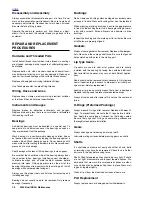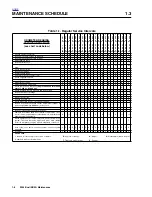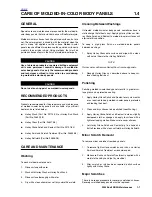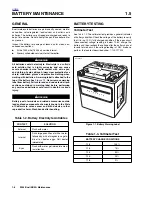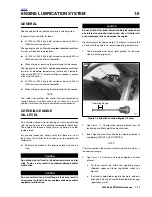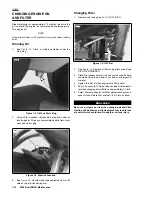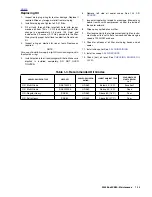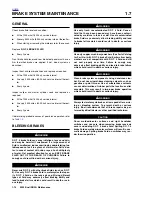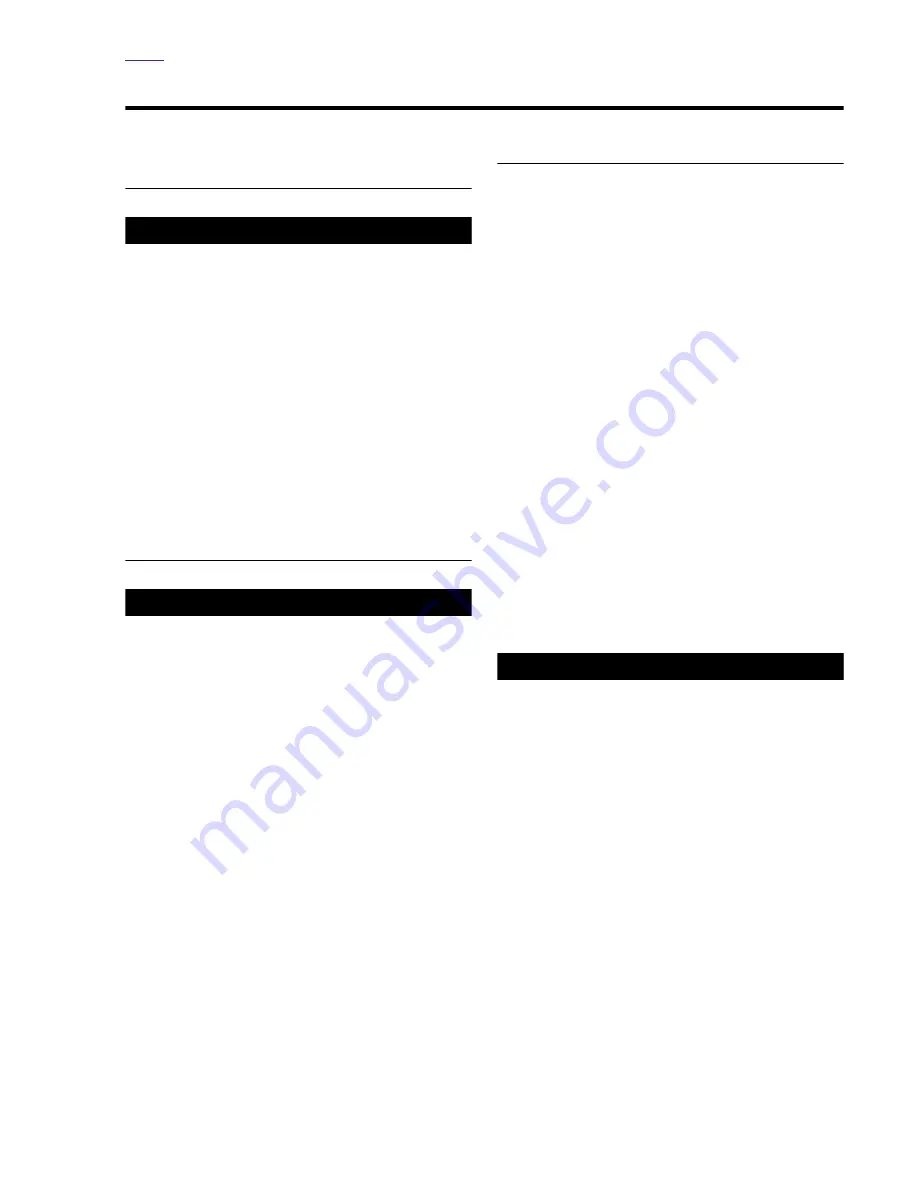
2003 Buell XB9S: Maintenance
1-1
GENERAL
1.1
SERVICING A NEW
MOTORCYCLE
1
WARNING
1
WARNING
Always follow the listed service and maintenance recom-
mendations, because they affect the safe operation of
the motorcycle and the personal welfare of the rider. Fail-
ure to follow recommendations could result in death or
serious injury.
Service operations to be performed before customer delivery
are specified in the applicable model year PREDELIVERY
AND SETUP MANUAL.
The performance of new motorcycle initial service is required
to keep warranty in force and to ensure proper emissions sys-
tems operation. See
for
details.
SAFE OPERATING
MAINTENANCE
CAUTION
●
Do not attempt to retighten engine head bolts.
Retightening can cause engine damage.
●
During the initial break-in period, use only Harley-
Davidson 20W50 engine oil. Failure to use the rec-
ommended oil will result in improper break-in of the
engine cylinders and piston rings.
A careful check of certain equipment is necessary after peri-
ods of storage, and frequently between regular service inter-
vals, to determine if additional maintenance is required.
Check:
1.
Tires for abrasions, cuts and correct pressure.
2.
Secondary drive belt for proper tension and condition.
3.
Brakes, steering and throttle for responsiveness.
4.
Brake fluid level and condition. Hydraulic lines and fit-
tings for leaks. Also, check brake pads and rotors for
wear.
5.
Cables for fraying, crimping and free operation.
6.
Engine oil and transmission fluid levels.
7.
Headlamp, passing lamp, tail lamp, brake lamp and turn
signal operation.
SHOP PRACTICES
Repair Notes
NOTE
●
General maintenance practices are given in this section.
●
Repair = Disassembly/Assembly.
●
Replace = Removal/Installation.
All special tools and torque values are noted at the point of
use.
All required parts or materials can be found in the appropriate
PARTS CATALOG.
Safety
Safety is always the most important consideration when per-
forming any job. Be sure you have a complete understanding
of the task to be performed. Use common sense. Use the
proper tools. Protect yourself and bystanders with approved
eye protection. Don’t just do the job – do the job safely.
Removing Parts
Always consider the weight of a part when lifting. Use a hoist
whenever necessary. Do not lift heavy parts by hand. A hoist
and adjustable lifting beam or sling are needed to remove
some parts. The lengths of chains or cables from the hoist to
the part should be equal and parallel and should be posi-
tioned directly over the center of the part. Be sure that no
obstructions will interfere with the lifting operation. Never
leave a part suspended in mid-air.
1
WARNING
1
WARNING
Always check the capacity rating and condition of hoists,
slings, chains or cables before use. Failure to do so can
lead to an accident which could result in death or serious
injury.
Always use blocking or proper stands to support the part that
has been hoisted. If a part cannot be removed, verify that all
bolts and attaching hardware have been removed. Check to
see if any parts are in the way of the part being removed.
When removing hoses, wiring or tubes, always tag each part
to ensure proper installation.
Cleaning
If you intend to reuse parts, follow good shop practice and
thoroughly clean the parts before assembly. Keep all dirt out
of parts; the unit will perform better and last longer. Seals, fil-
ters and covers are used in this vehicle to keep out environ-
mental dirt and dust. These items must be kept in good
condition to ensure satisfactory operation.
Clean and inspect all parts as they are removed. Be sure all
holes and passages are clean and open. After cleaning,
cover all parts with clean lint-free cloth, paper or other mate-
rial. Be sure the part is clean when it is installed.
Always clean around lines or covers before they are removed.
Plug, tape or cap holes and openings to keep out dirt, dust
and debris.


